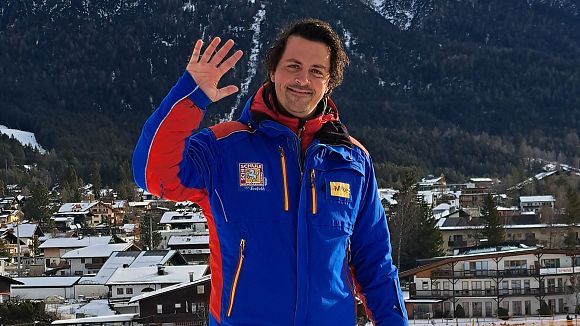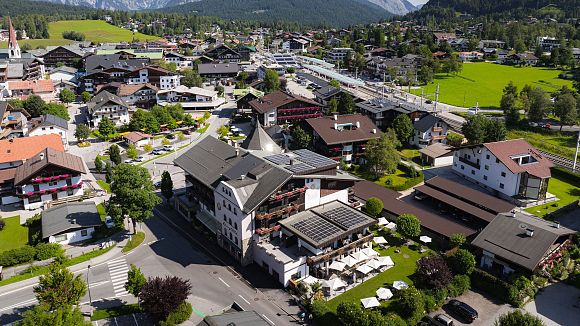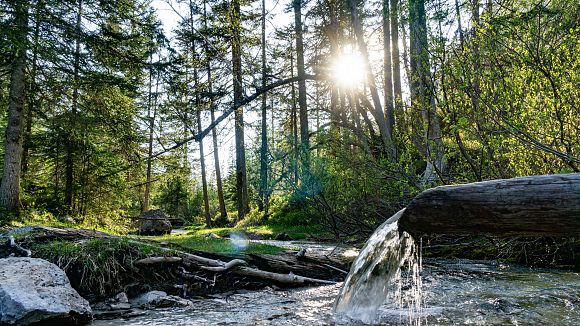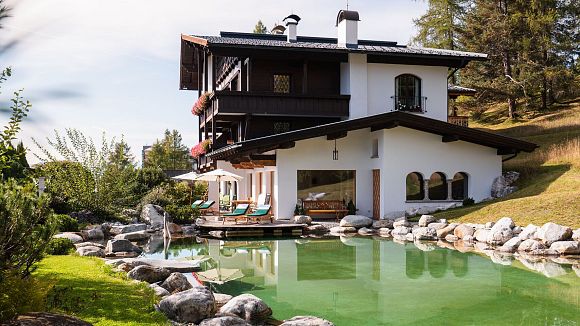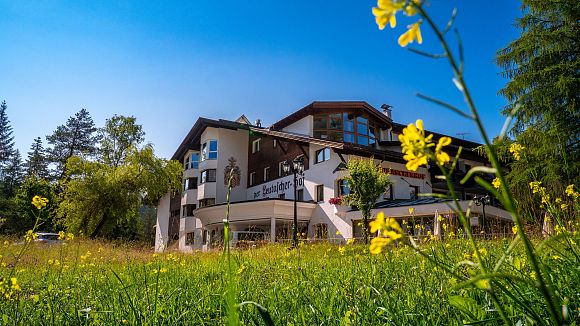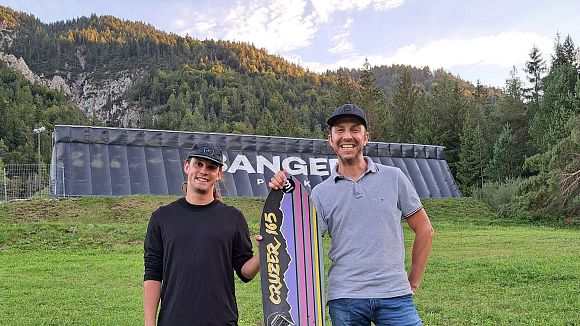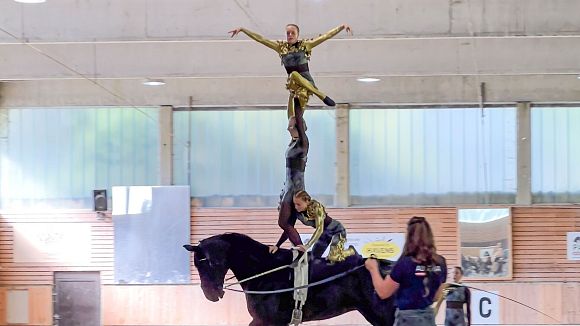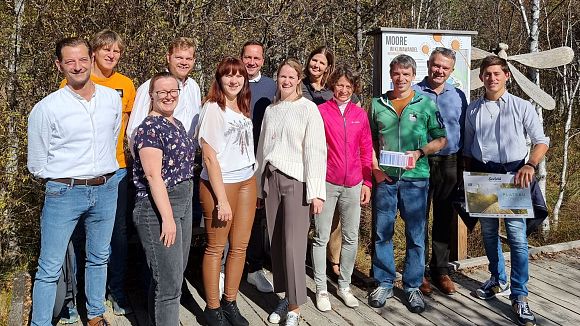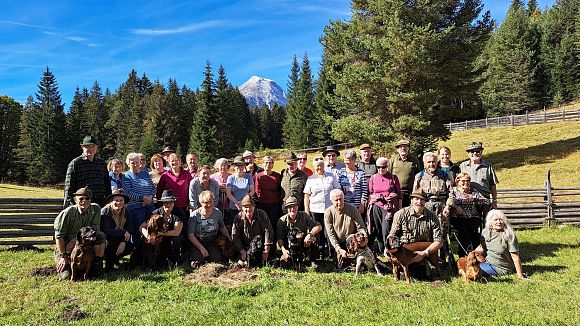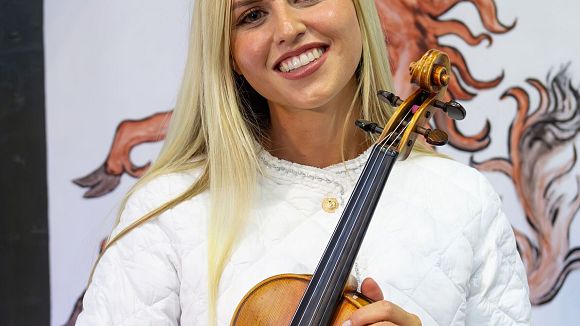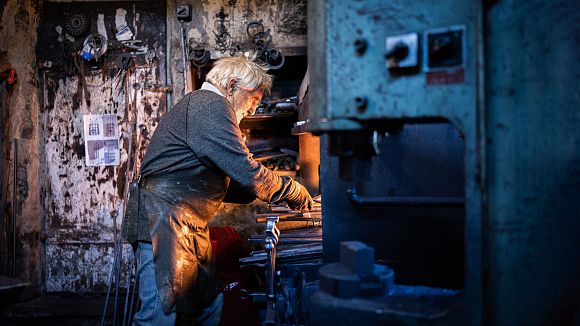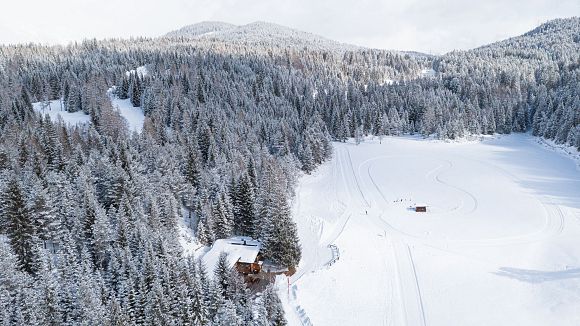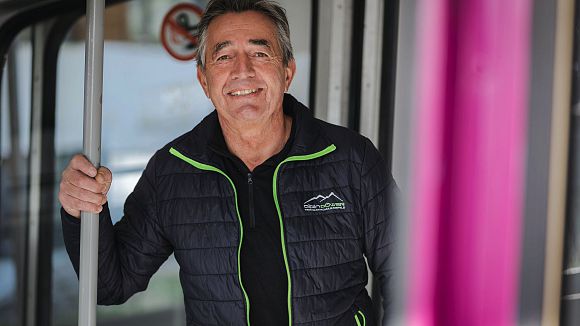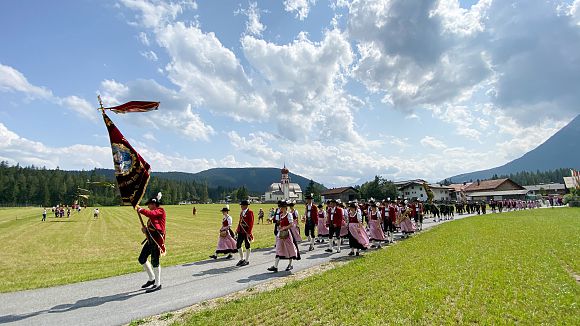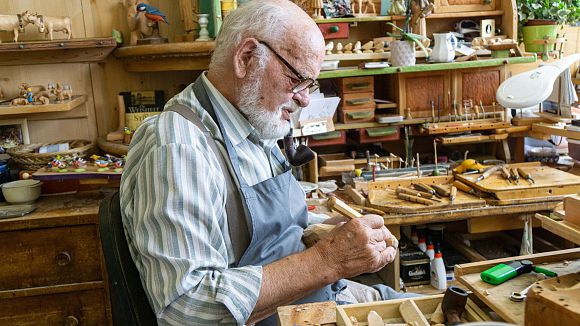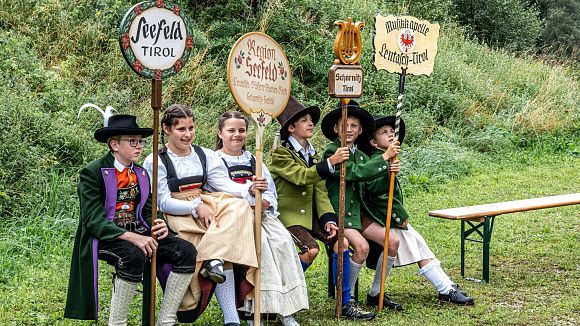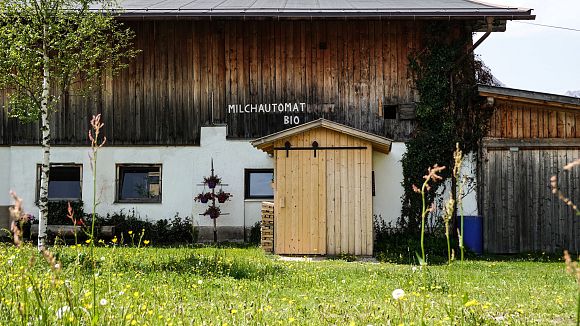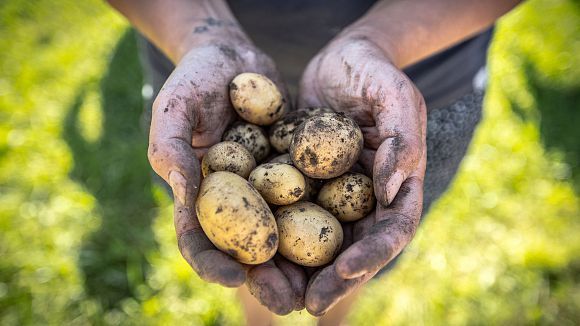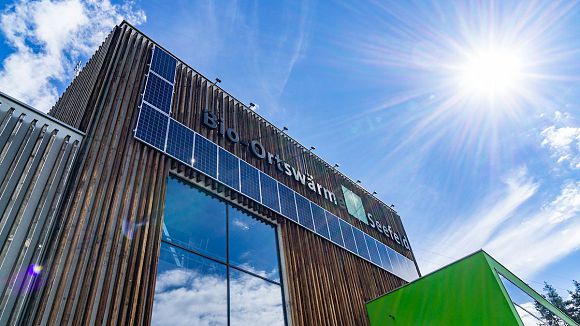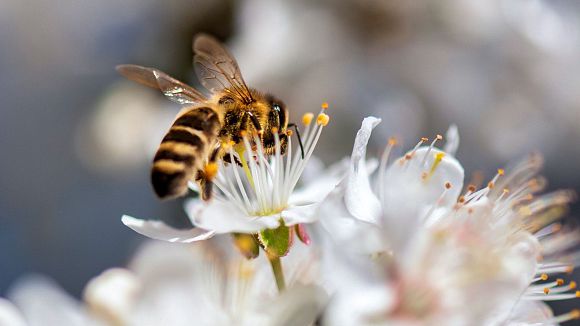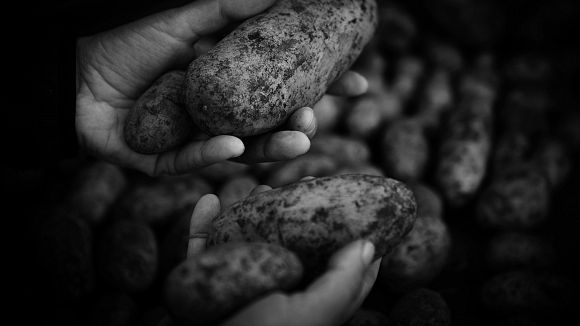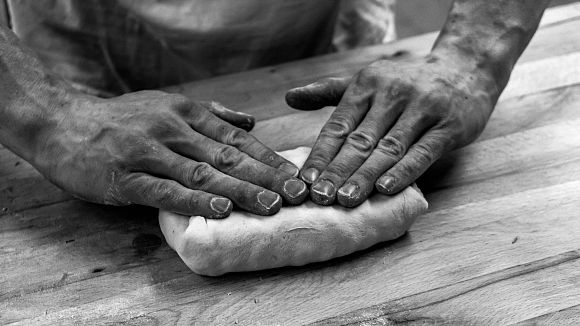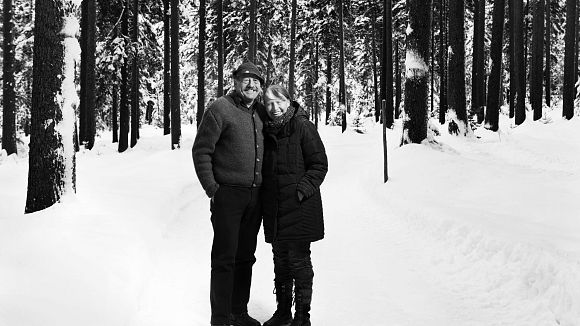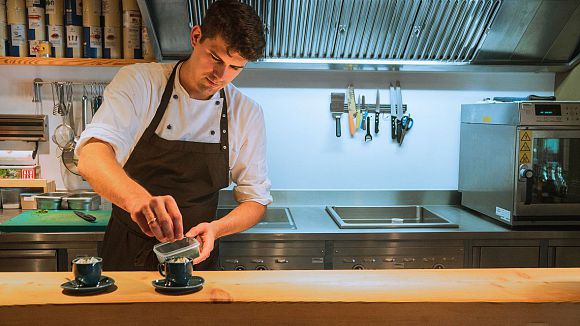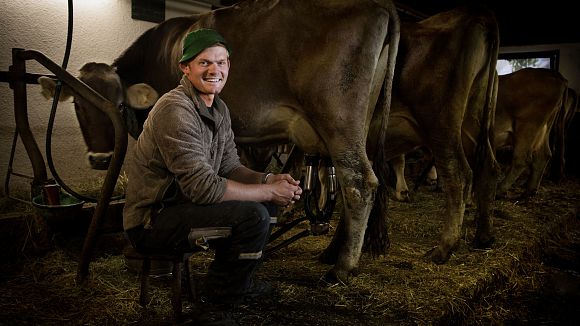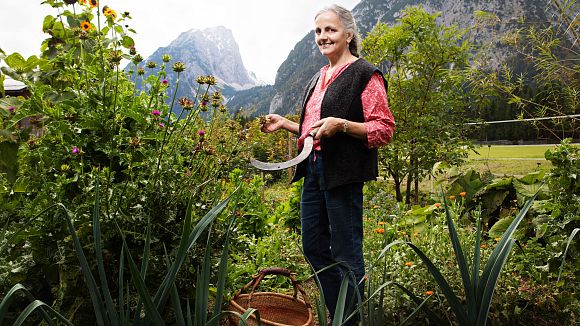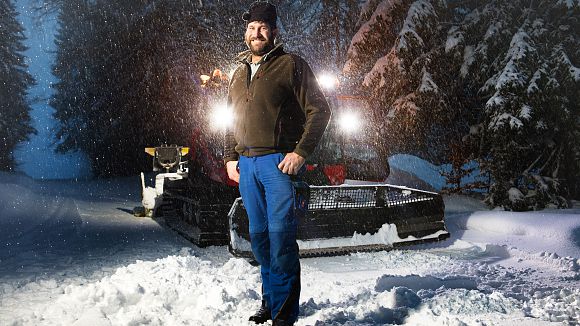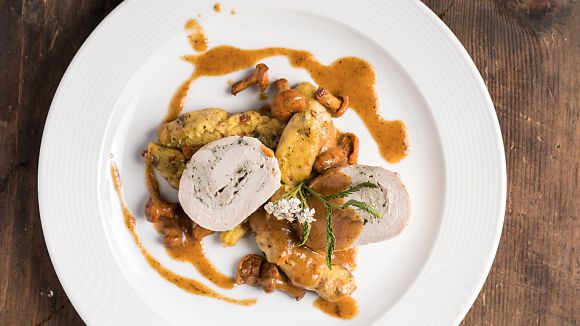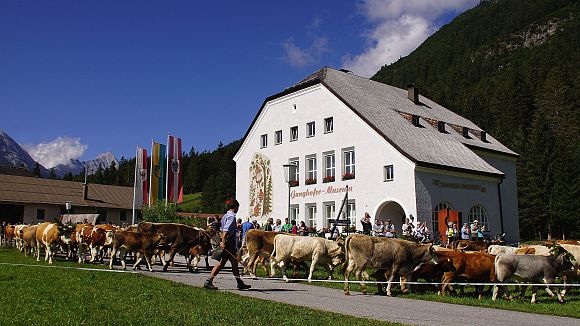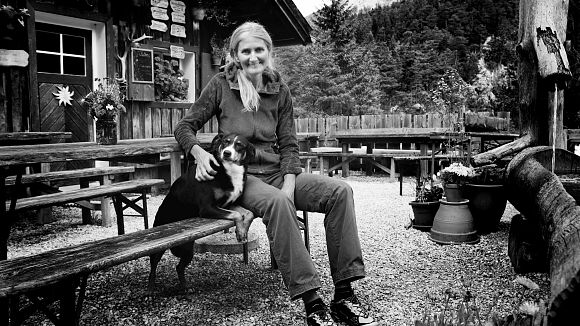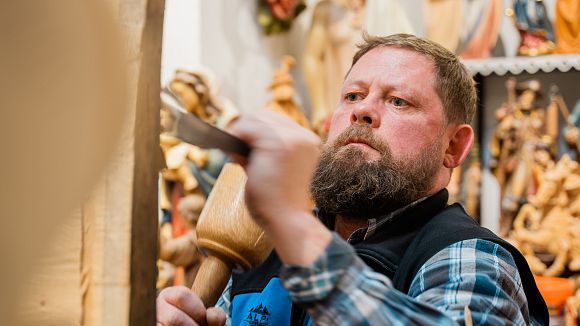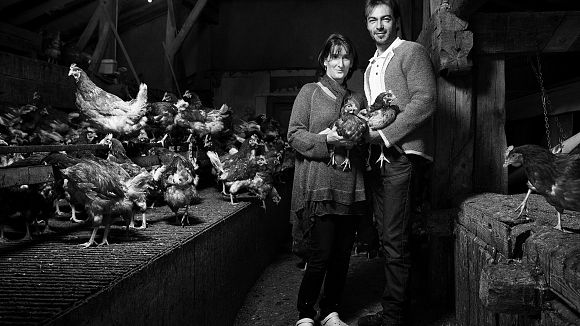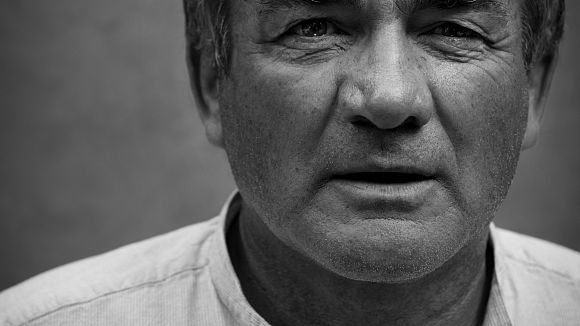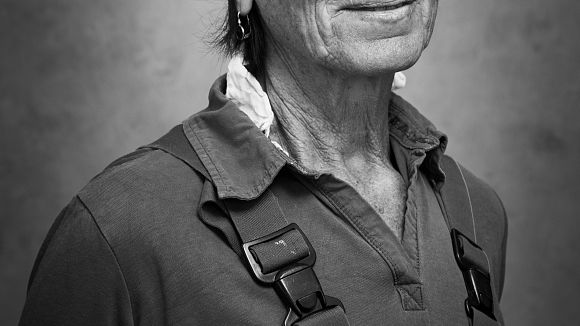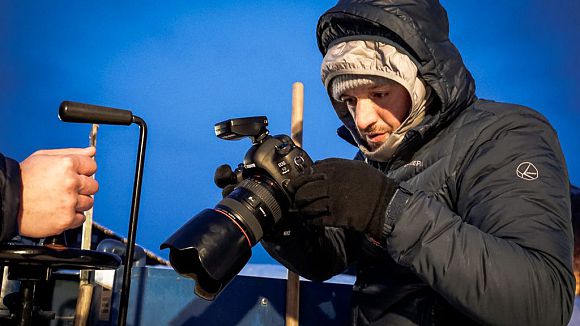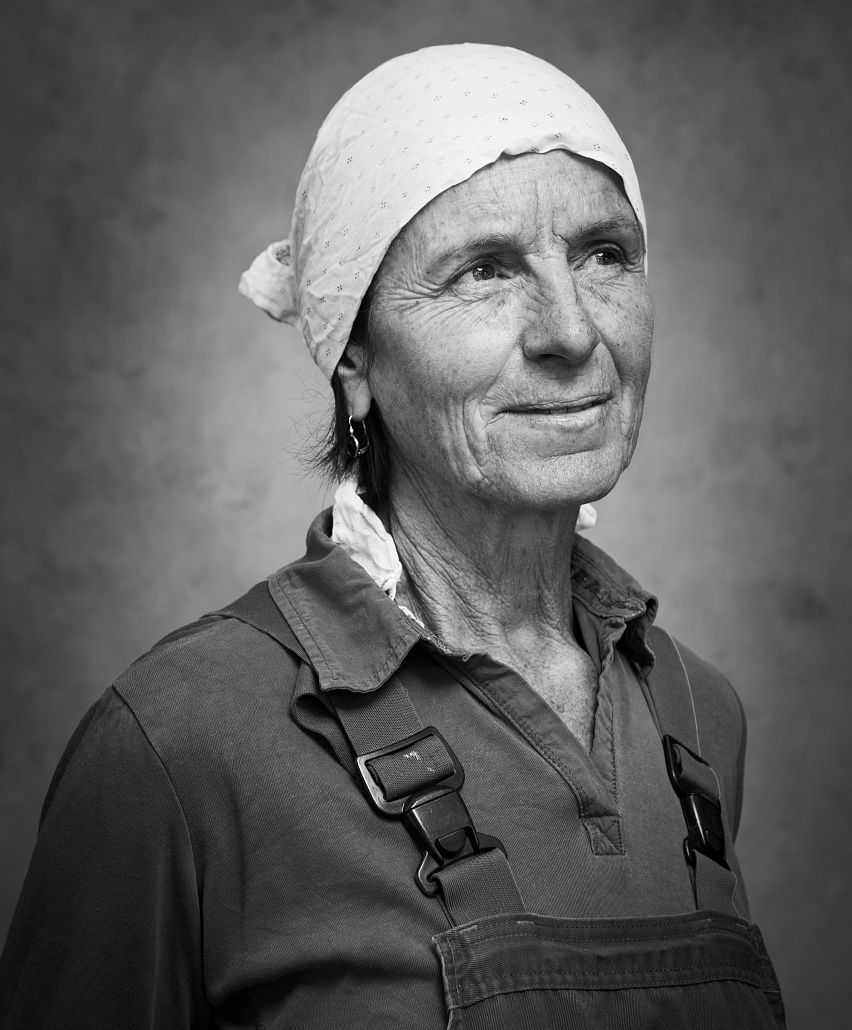
von Tessa Mellinger
April 11, 2018
TRUE LOCALS
True locals: Farmer Maria Gapp
A strong woman: Farmer Maria Gapp
Farmer Maria Gapp is what you imagine a "strong woman" to be: She can tackle, work hard and has not let strokes of fate get her down. She owns the Gapphof in Reith near Seefeld - a farm that has been in family hands for over 380 years and has been passed down from generation to generation. Life on the farm is not always an easy one - but certainly one that makes you happy.
1 farmer's wife, 35 cows, and a lot of work
The Gapphof in idyllic Reith is home to 16 cows and 19 head of young cattle, a few rabbits and chickens - and to farmer and hostess Maria Gapp. "Isn't that a lot of work, all by yourself?" we ask Maria. "Yes," she laughs, "but it can be done!". Maria speaks with a sparkle in her eye and a deep dialect. She is slim, fit - you can't tell her actual age. Maria is a woman who has learned to tackle things. When her husband died 13 years ago, she was faced with a more than great challenge: the farm, the animals, the room rental, the family - she now had to master all of this alone. But Maria has made it: The Gapphof is firmly in her hands.Maria originally comes from Upper Austria, where she herself grew up on a farm. So she learned to love working on the farm from an early age: "Even as a child, I always enjoyed going to the barn with my parents," she recalls.
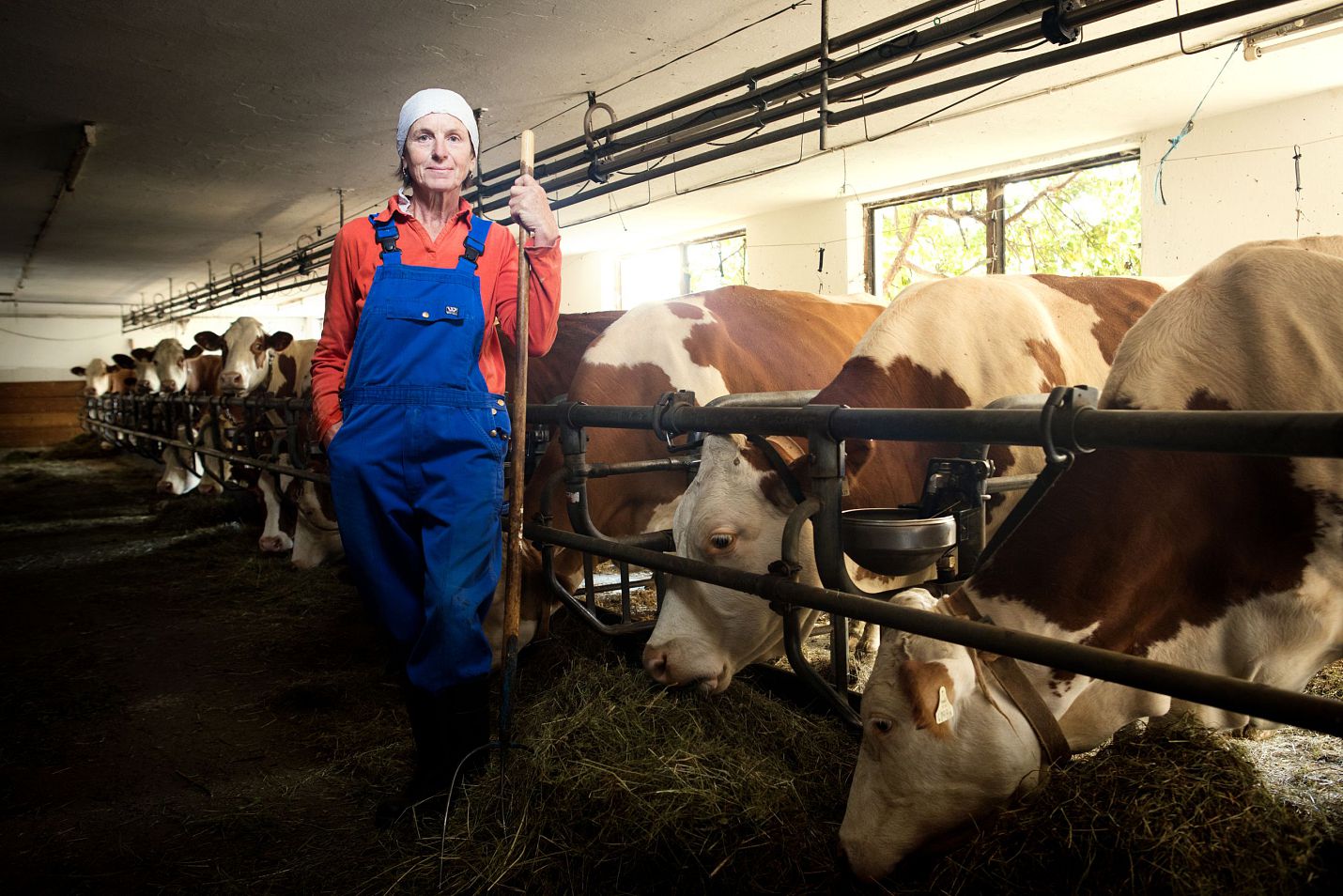
Maria Gapp from the Gapphof
Heritage rich in tradition
Sometimes it would be nice if objects could talk. Because then the Gapphof would have many exciting stories to tell us. After all, it already has many years under its belt: The farms at the hamlet were mentioned in writing as early as the 12th century. Since 1634 it has belonged to the Gapp family and has been handed down from generation to generation ever since. 11 generations and more than 380 years meanwhile. A heavy legacy when you imagine how much the Erbhof and its inhabitants have probably experienced in all these years. "Back then, inheritance was a little different," Maria says. Instead of simply inheriting the farm, the boys had to buy it from their parents. The reason: back then, there was no such thing as a pension. "But you can never really stop working on the farm anyway," Maria says with a knowing grin. Anyone who has learned from an early age to always work will continue to do so even in old age.
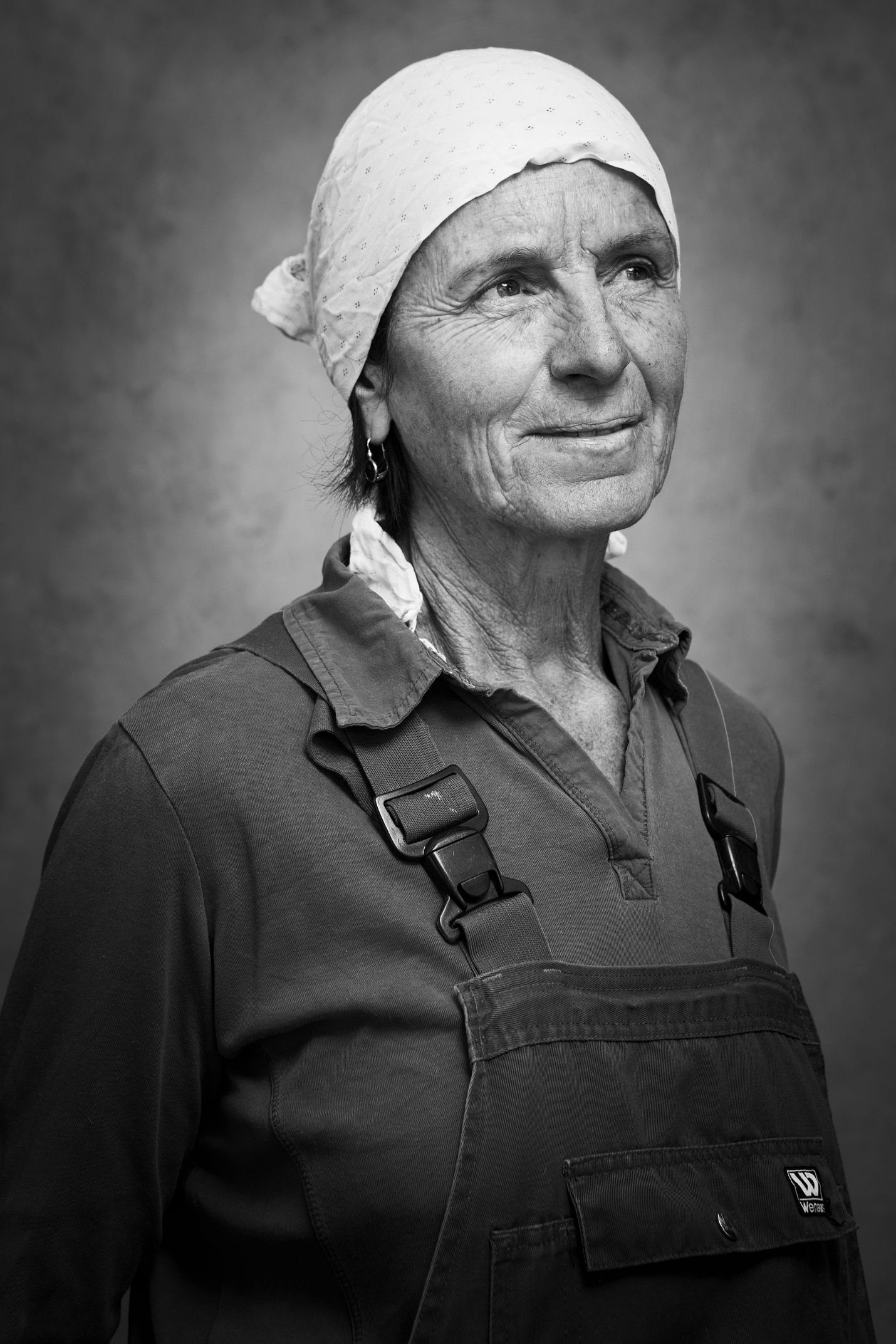
Portrait photo of Maria Gapp
16 hours plus working day
Many of us would complain about Maria's workload: Most of the time she works more than 16 hours a day. She gets up at 4 a.m., because that's when the cows want to be milked. In the summer, that's the start of a long day: the field work, gardening and haymaking have to be done, the barn and the guests are waiting, you have to make firewood, straighten the fences, drive the cows to pasture and bring them back to the barn, make the cheese and all the other products, clean everything - and so much more. The work never runs out. By 9 or 10 p.m. in the summer, the workday is over. "That's when you fall into bed totally exhausted!".And then the weather likes to play tricks on her: On warm days, she turns on the hay ventilation to dry the hay. But when she hears thunder rumbling in the middle of the night, she has to get up quickly and climb onto the roof to put the roof tiles back on. So that all the hay doesn't get wet and all the work is for nothing.Winter is a little more relaxed - if you can say that. Because there the day ends "already" at 7 pm. But sometimes Maria has time to go skiing and enjoys it all the more.
From farmhands and maids to machines and technology
Over the decades and centuries, a lot has changed at the farm: "In the past, you had servants and maids. Today, there are very few people on the farm because it's no longer sustainable to be able to pay someone," Maria says. "So you have to be happy that family members are helping out." Maria's son, fortunately, has a job where he can take time off, even on fairly short notice, to help her with field work in the summer.Farms in Tyrol have always been small-scale. "In the very old days, you could live on it." Today, unfortunately, that is no longer the case. High maintenance costs - of machinery, for example - force many farmers to have a sideline.That's why the working day of many farmers in Tyrol is a hard one. At 5 a.m., they go to the barn to take care of the livestock before going to work. Then it's off to the office, and in the evening the farm is waiting again.
Where the roots lie
Maria has subsequently decided to offer farm vacations to guests from all over the world. "Why do you do all this if it's so much work?" we ask her. The answer for the farmer is a very simple one: "You are much more rooted in everything because you have to work hard to get it. So you have a close relationship with what you have created your whole life and what has been passed down from generation to generation.
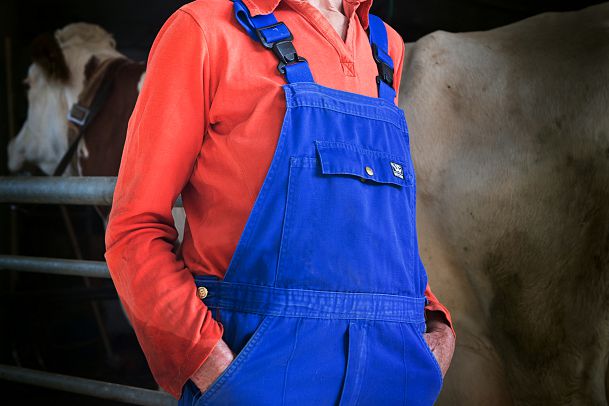
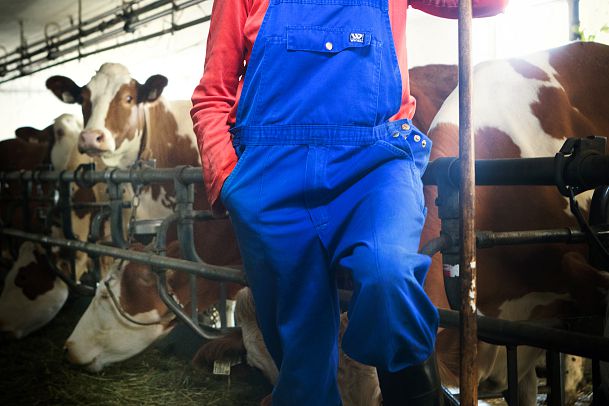
A life with the seasons
One aspect that Maria particularly loves about her work is living with the seasons: "You experience the seasons and through that you can still really perceive them!" she enthuses. She feels the change of seasons more intensely than almost anyone else. "In the spring, you're already looking forward to what will be the first to blossom and grow again, you see everything turning green. It goes from one to the other - you can enjoy everything much more consciously!" Quite typical for her is also the difference of the individual places in the region in the different seasons - especially in spring. "In Leutasch you can still go cross-country skiing in March and April, and in Reith we've already finished fertilizing the fields.". But one is also dependent on the weather: "You have your workshop out in the open!" she knows. The weather extremes these days often don't make it easy for her. You have to learn to adjust and subordinate yourself to the weather, and that doesn't just apply to field work. She also really enjoys working with the animals: "Every cow grows on you!" she knows. "Some you like better, some less, but I've often shed a tear when one has had to go! But that's just the way it is, life on the farm: you can't keep them all."
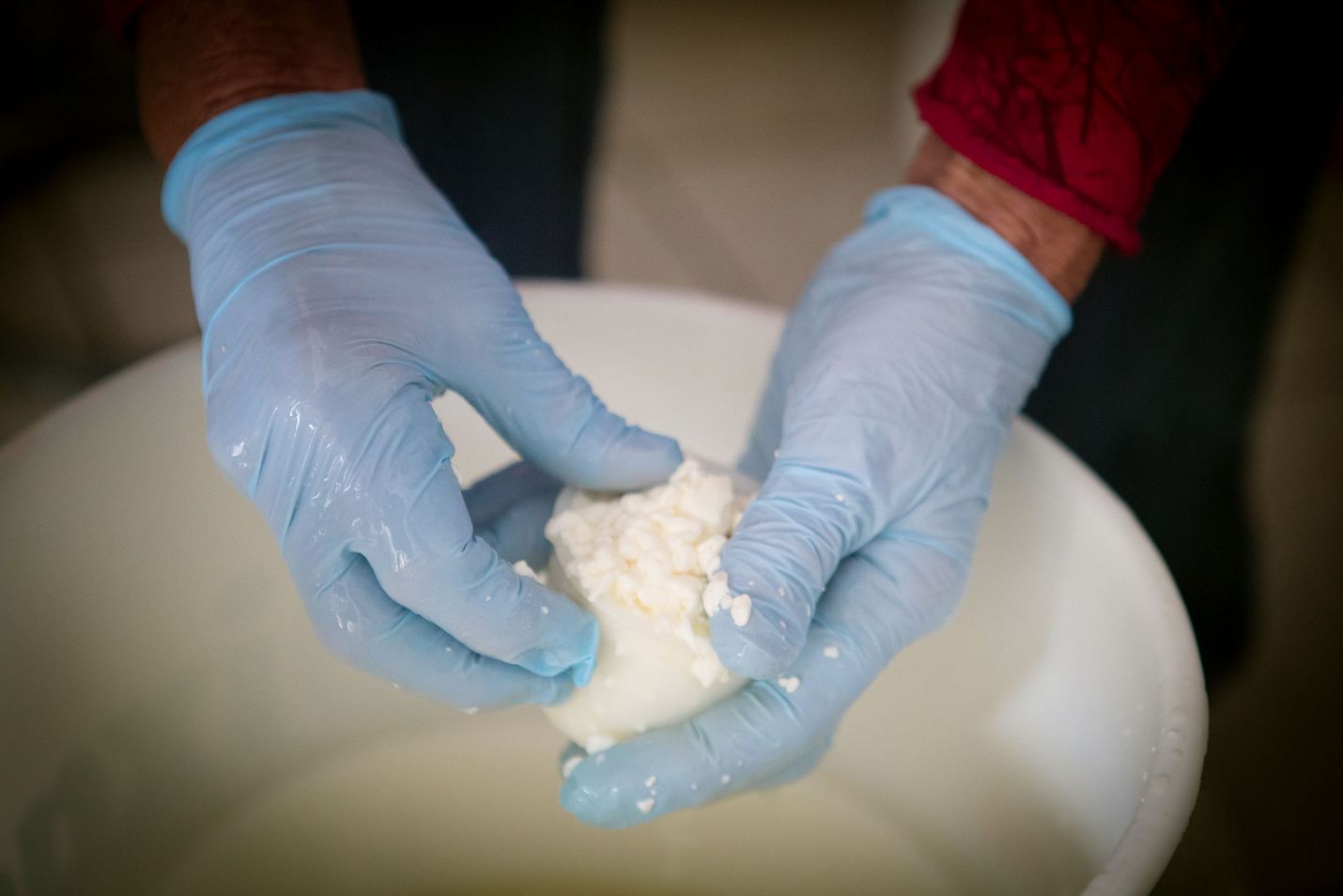
Maria makes her own products
Awareness for regional products
Maria makes her own products from the milk of her cows: yogurt, cream cheese, curd cheese (quark) and a "herb rollino" she prepares several times a week. In fact, she likes to have her own products not only for her house guests, but also supplies hotels and businesses in the region. In summer, hikers can even fortify themselves at the Nördlinger Hütte with cheese from the Gapphof. "Yes, this is also a very time-consuming job," Maria admits. "But I like doing it!" And it is important to her that farms and supermarkets offer regional products and, above all, support farmers from the region. "Some businesses in our area show, after all, that it can be done!" You can very well offer many products of the small farmers and thus support local agriculture. Maria hopes that this awareness will be expanded even further and that more hotels and supermarkets will offer farmers' products in the future.
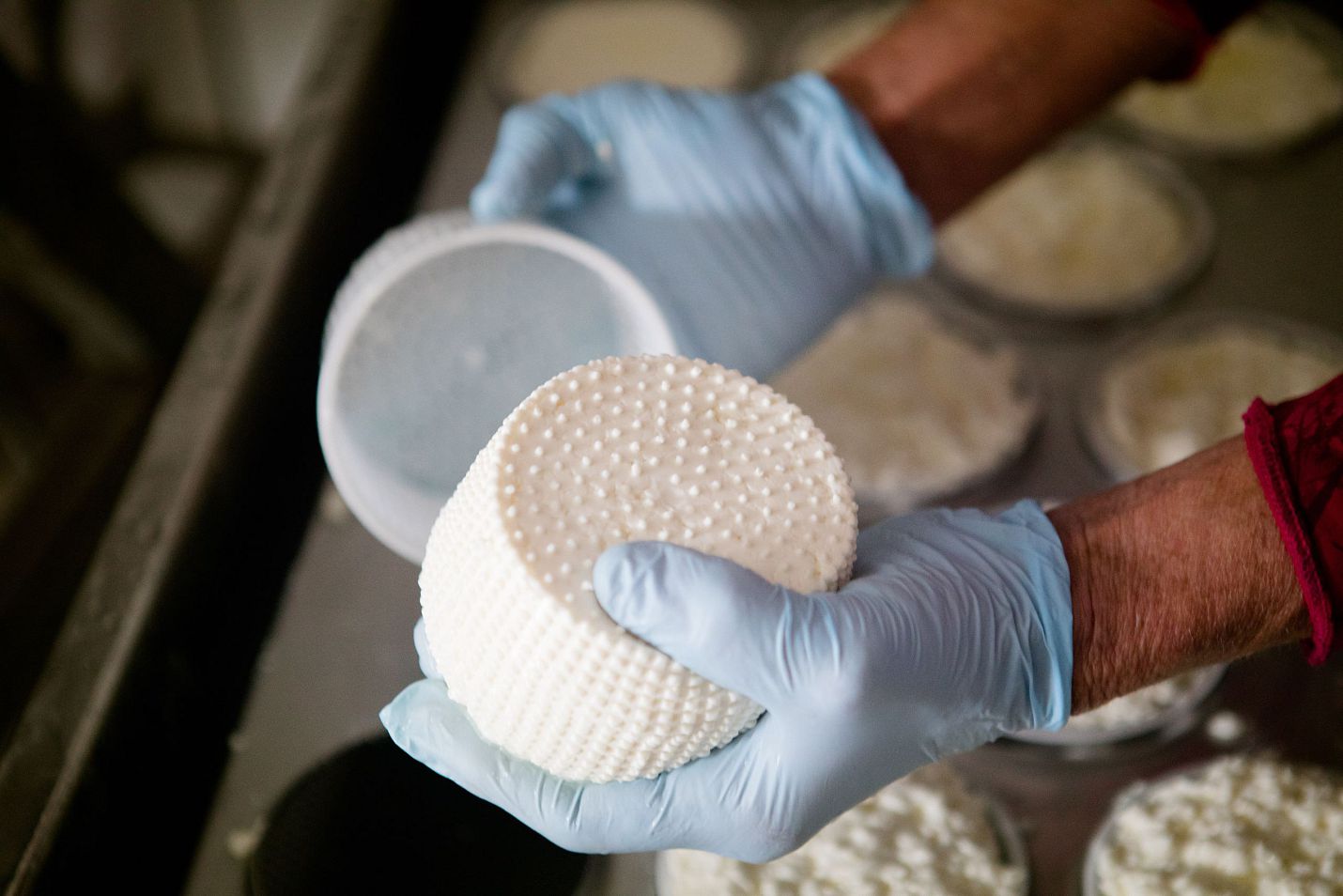
Maria making fresh cheese
Click here to go to the Gapphof.
Blog Tags
Share
